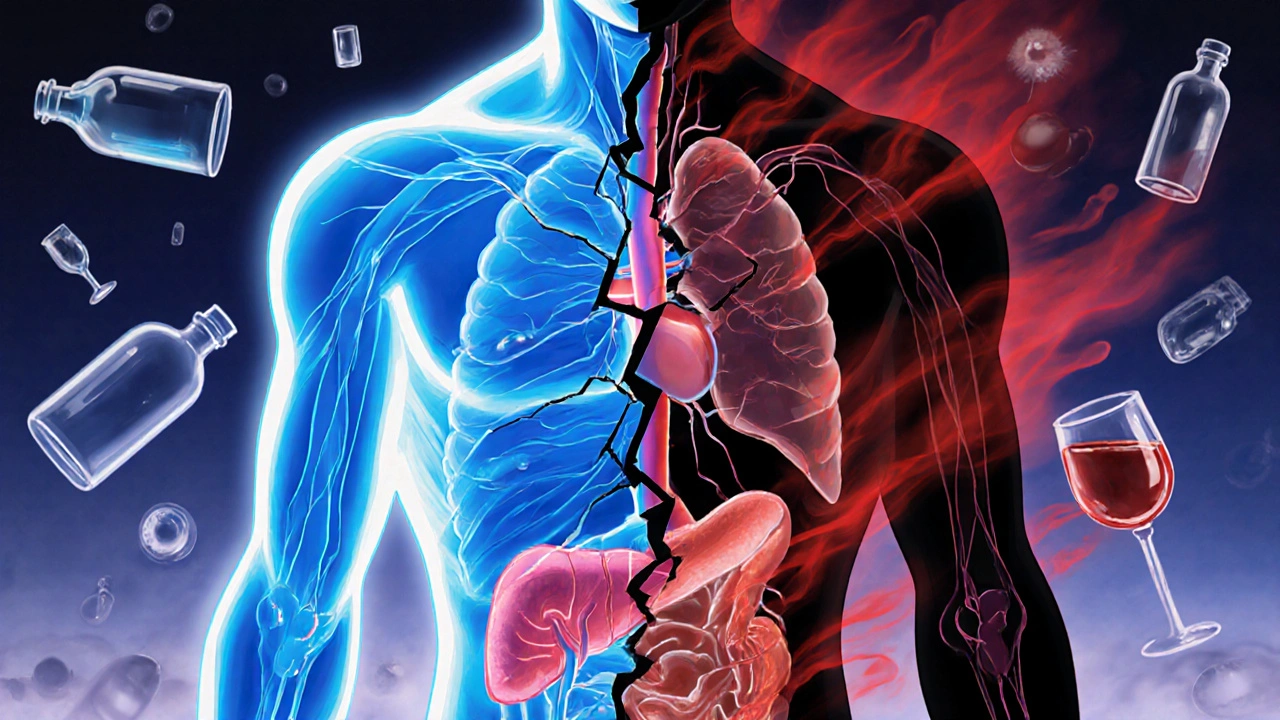Medication and Alcohol: Risks, Interactions, and What You Need to Know
When you take medication and alcohol, the combination can change how your body processes both substances, sometimes with serious or life-threatening results. Also known as drug-alcohol interactions, this isn’t just about getting drunk faster—it’s about your liver, your heart, your brain, and whether your medicine even works the way it should.
Many people think a glass of wine with their painkiller or a beer with their antidepressant is harmless. But alcohol, a central nervous system depressant doesn’t play nice with blood pressure meds, like metoprolol or clonidine. It can drop your blood pressure too low, making you dizzy or faint. With pain relievers, such as diclofenac or ibuprofen, alcohol increases your risk of stomach bleeding and liver damage. Even something as simple as antibiotics, like tetracycline or doxycycline, can become less effective—or cause nausea and headaches—when mixed with alcohol.
It’s not just about the obvious drugs. Antidepressants like sertraline, sleep aids, anxiety meds, and even over-the-counter cold remedies can turn dangerous when paired with alcohol. Your body treats alcohol like a toxin, and when it’s busy breaking that down, it can’t properly process your medication. That means side effects get worse, the drug doesn’t work as well, or worse—you get hit with unexpected reactions like confusion, irregular heartbeat, or breathing trouble. People on long-term meds for conditions like high blood pressure, depression, or chronic pain are especially at risk, because these drugs build up in your system over time.
You might not feel anything right away. That’s the trick. The danger isn’t always loud—it’s quiet. A headache after a drink. Feeling more tired than usual. A stomach ache you didn’t have before. These aren’t just coincidences. They’re your body telling you something’s off. And if you’re taking more than one medication? The risk multiplies. There’s no safe amount for everyone. What’s fine for one person might be risky for another, depending on age, weight, liver health, and what else you’re taking.
This page brings together real, practical guides from people who’ve been there—whether they’re managing blood pressure, dealing with nausea, treating infections, or trying to protect their mental health. You’ll find clear comparisons of common drugs, warnings about what not to mix, and advice on how to talk to your doctor without fear. No fluff. No scare tactics. Just what you need to know to make smarter choices about your health when alcohol is in the picture.
Trimethoprim and Alcohol: What You Need to Know About the Risks
Mixing trimethoprim and alcohol can worsen side effects, slow recovery, and trigger dangerous reactions. Learn the real risks and what to do if you’ve already had a drink.
More
